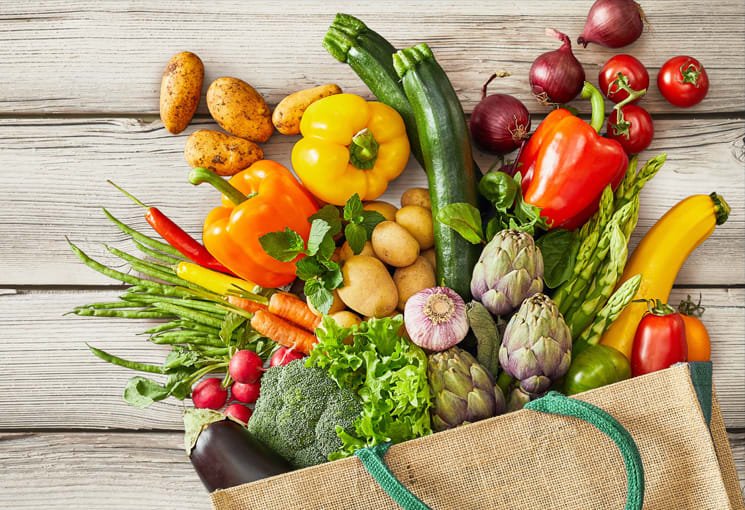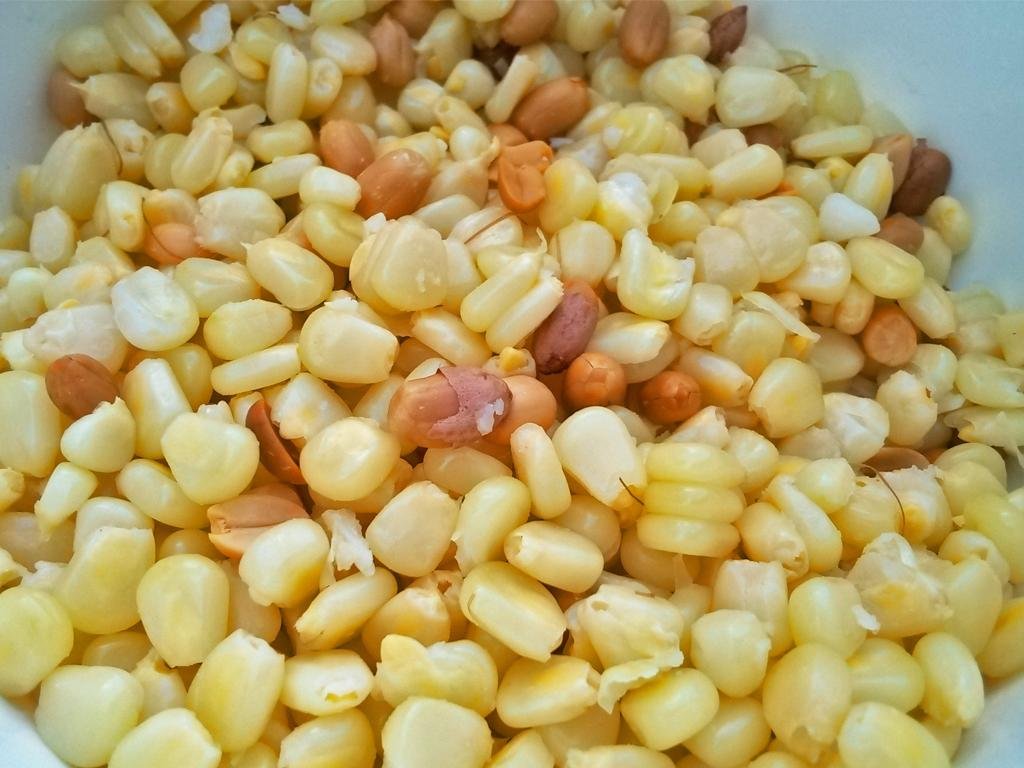Nutrition
Health benefits of corn

• Fresh corn
-Corn has soluble fibre for satisfaction and a healthy gut
One medium-sized ear of corn packs in about two grams of fibre. Corn contains fibre and insoluble fibre. It makes one feel full and satisfiedand promotes healthy gut bacteria.
Corn is a starchy vegetable, meaning it is naturally higher in carbohydrates than some other vegetables. The soluble fibre helps slow down the absorption of carbohydrates preventing spikes in blood sugar and keeping one from getting hungry again quickly.
-Corn is a source of plant protein
Adding corn to salads, pastas, rice and more is a sneaky way to up a dish’s protein content, especially if one is a vegetarian or vegan. Corn provides more protein than most other vegetables. Like fibre, protein helps keep hunger and cravings at bay and serves numerous essential functions in the body, including muscle repair and growth.
-Corn contains vision-protecting nutrients
Lutein and zeaxanthin give commonly found varieties of corn its yellow hue and constitute the main pigments found in the yellow spot of the human retina. Consuming these two carotenoids can help protect the eyes from blue light damage. It improves visual acuity, and even reduce the risk of age-related macular degeneration and cataracts.
-Corn provides potassium and magnesium
One serving of corn contains about six per cent of the daily potassium needs and nine to 12 per cent of daily magnesium needs. These minerals (both categorised as electrolytes) play a role in numerous different body processes. Potassium, to name a few, helps regulate hydration levels, send nerve signals, protect bones, and reduce blood pressure. Magnesium, too, is involved in nerve function and regulation, managing blood pressure, and reducing the risk of stroke and ischemic heart disease.
-Corn contains vitamins C and B.
Whether you consider corn a vegetable or a whole grain, it provides vitamins and minerals to the body. One cup of sweet yellow corn contains 17 per cent of the daily value of vitamin C, an antioxidant that supports your immune system, collagen production, and iron absorption.
It also offers about 24 per cent of the daily value of thiamine and 19 per cent of the daily value of folate—both are B vitamins that help convert carbohydrates into energy.
Folate is especially important to consume during pregnancy to ensure normal foetal development and prevent certain birth defects.
Source: www.realsimple.com
Nutrition
Dietary management of prostate cancer

Eat balanced diet
In this new chapter, we will be discussing how we can manage prostate cancer with our diet.
Prostate cancer, although rare in men under 40 years, is the third most common cause of cancer deaths in men of all ages. The prostate is a gland below a man’s bladder that wraps around the urethra (the passage that guides urine out of the body).
Signs and symptoms of prostate cancer may include:
● Problems passing urine, such as pain, difficulty starting or stopping the stream of urine, or dribbling.
● Frequent urination
● Lower back pain
● Pain with ejaculation
The level of a substance called prostate specific antigen (PSA), is often high in men with prostate cancer, so doctors check the level of PSA as a way to screen for prostate cancer. Since the PSA test became common, most prostate cancers are found before they cause symptoms. Notwithstanding, a lot of people present late and little or nothing can be done for them. But be aware that PSA can also be high in other conditions.
In as much as the ultimate management is surgical and/or medical, lifestyle modification and nutrition can go a long way in preventing prostate cancer.
Foods to include
● Fiber rich foods such as; whole foods, fruits and vegetables, seeds and nuts.
● Lycopene rich foods such as; tomatoes, water melon, sweet pepper, and red grapes.
● Omega-3 fatty acid rich foods such as; salmon, flaxseed, anchovies, and sardines.
● Selenium rich foods such as; mushrooms, shrimps, Brazil nuts, salmon, and oatmeal.
● Vitamin E rich foods such as; spinach, almonds, and asparagus.
● Vitamin C rich foods such as; oranges, tangerines, pineapples, and lemons.
Foods to avoid
● Red meat such as; beef, mutton, and chevon.
● Dairy products such as; milk, butter, cheese, yogurt and custard.
● Highly processed foods such as; sugary drinks, syrups and jams, and candies.
● Saturated fatty foods such as; pastries, deep fried foods, and lard.
● Highly salted foods such as; salted nuts, salted beef, salted fish, and potato chips.
Lifestyle modification
Modifying our lifestyle from a predominantly sedentary lifestyle to incorporating exercises like going for walks, jogging, and riding bicycles, as well as avoiding late-night high-calorie meals, excessive alcohol intake, and cigarette smoking will serve to prolong our healthy life and prevent prostate cancer from being our burden.
In conclusion, our strength and zeal is highest in our youth and we should take full advantage of this by changing our lifestyle now for the better and incorporating a healthy diet that will keep us free from such a diagnosis in our mid and elderly life.
The writer, Bernice Asare Korkor, is the CEO of Holistic Health Consult
“Your diet your health, your health your wealth”
E-mail: holistichealthconsultgh@gmail.com
Nutrition
Abora

Delicious Abora
Abora is one of the delicious snacks of the Ewes. It is made from corn and can be eaten at afternoons and late afternoons. Not every corn can be used to prepare Abora because some take longer periods to get cooked. This is why it is necessary to tell the vendor what you will use the corn for.
Ingredients
● Two cups of corn
● Two tablespoonful of salt
● Three tablespoonful of sugar
Preparation
● Soak the corn overnight
● Wash and cook the corn
● Cook until it is soft and you can
see the inner part of the corn
● Scoop a portion into a bowl
● Add salt and sugar to taste
● Can be eaten with roasted
groundnut or coconut
– Aids digestion
– Regulates blood pressure
– Supports heart health
– Lowers risk of chronic disease
– Provides protective antioxidants
– Promotes a healthy gut
Source: Healthline.com







